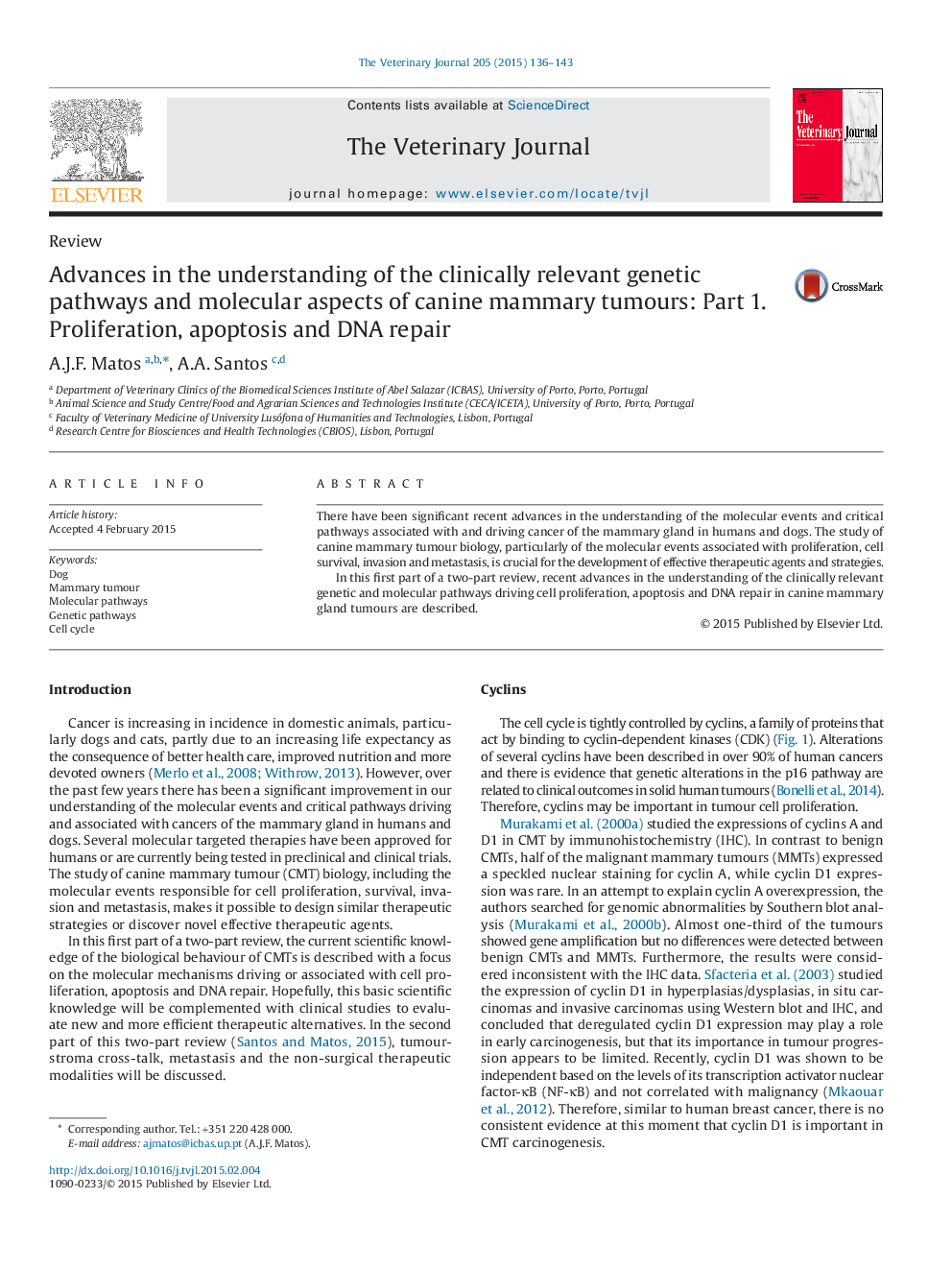| Article ID | Journal | Published Year | Pages | File Type |
|---|---|---|---|---|
| 5797463 | The Veterinary Journal | 2015 | 8 Pages |
â¢New canine mammary tumour treatments must rely on solid knowledge of their biology.â¢Recent advances have been made in the understanding of their pathways.â¢TP53/P53, PR, and Ki-67 are the most valuable prognostic factors for CMT.â¢HER-2, ER and AgNOR require standardisation of the evaluation methods.â¢Molecular phenotypes, telomerase and PTEN require validation in clinical trials.
There have been significant recent advances in the understanding of the molecular events and critical pathways associated with and driving cancer of the mammary gland in humans and dogs. The study of canine mammary tumour biology, particularly of the molecular events associated with proliferation, cell survival, invasion and metastasis, is crucial for the development of effective therapeutic agents and strategies.In this first part of a two-part review, recent advances in the understanding of the clinically relevant genetic and molecular pathways driving cell proliferation, apoptosis and DNA repair in canine mammary gland tumours are described.
